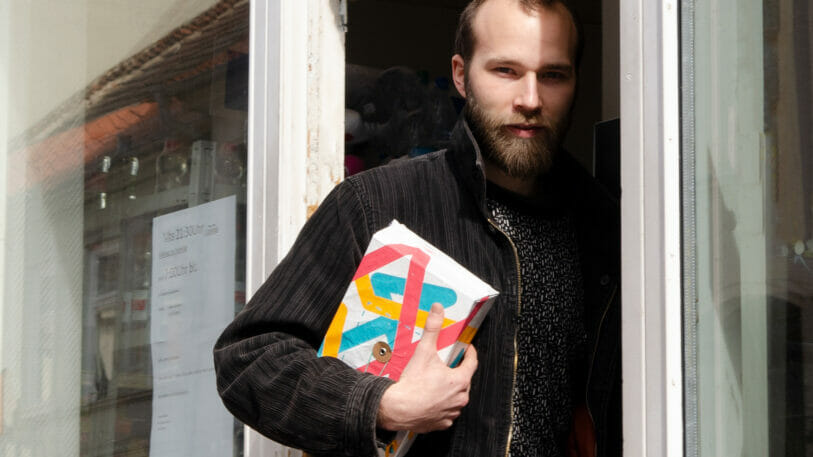At Wismar University of Applied Sciences, Rebekka Jochem and Jacobo Cuesta Wolf have developed a shipping package that is damage resistant and can be used several times. It is intended to help curb the waste caused by the growing online mail order business and thus make online shopping more resource-friendly.
Repost is the name of the shipping packaging of the two young designers. It was created in a semester project in the design course at the Faculty of Design at Wismar University of Applied Sciences. The reusable, resource-saving package system for the mail-order business is made of the tear and water-resistant material, Tyvek, and can be returned via the letterbox. „Online trade has grown rapidly in recent years, which means that much more packaging waste is produced. With our project, we wanted to help draw attention to the problem and reduce this mountain of waste,“ says Jacobo Cuesta Wolf. The two designers have therefore planned their colourful box as a returnable system with a deposit.
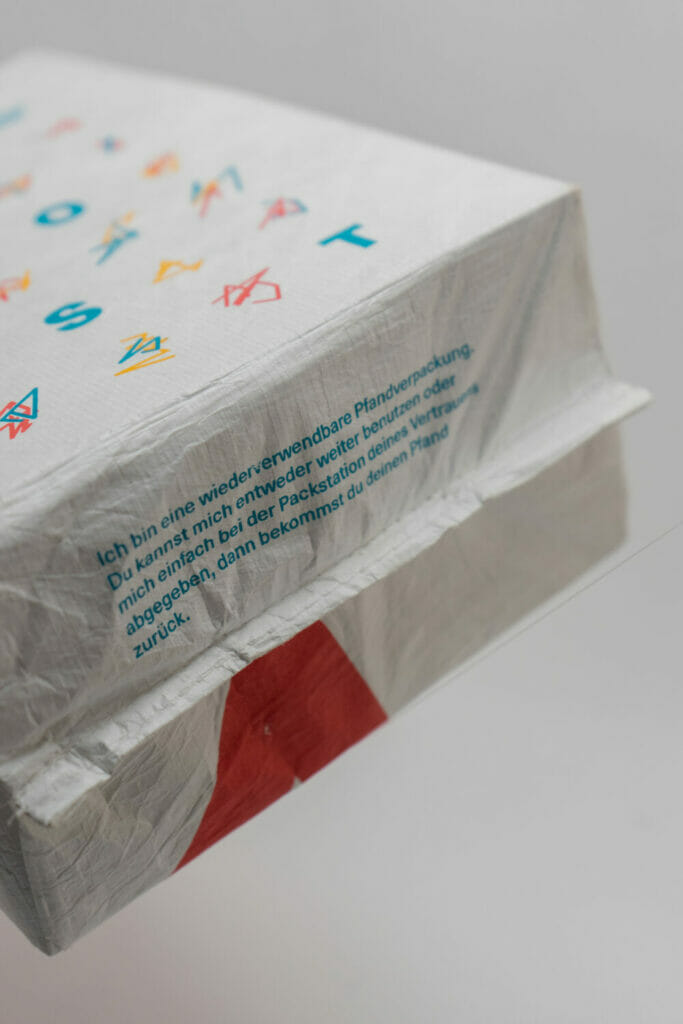
Each box is designed so that it can be used around 30 times. After receiving the goods, the customer can fold up the box and return it by post to the mail-order company, which in turn uses it again. „We have conducted tests and sent the prototype several times to family and friends, who then sent Repost back to us by mail. After all, the prototype has already made 17 rounds,“ says Rebekka Jochem.
Small volume for return transport
The soft outer material of the foldable box is reinforced with recycled cardboard. It gives the box stability and protects the goods inside. After receiving the goods, the sheets can be removed, folded and placed flat in the Tyvek cover so that the box has a very small empty volume. „This makes it possible to keep the logistical effort involved in returning the goods as small as possible,“ explains Wolf. The concept also provides for different formats and a shipping label that is used as a seal. It thus clearly shows whether the packaging has been opened before it reaches the customer.
-

- Jacobo Cuesta Wolf (Bild: Jacobo Cuesta Wolf)
-

- Rebekka Jochem (Bild: Jacobo Cuesta Wolf)
Tyvek, a high-density polyethylene nonwoven from DuPont, is lightweight and durable, has a tactile resemblance to paper and is cheap to boot. „Before we decided on Tyvek, there were material experiments, for example with biodegradable plastic that could be cut like paper. We also experimented with whey and chitosan. But the biomaterials didn’t work out because they weren’t robust enough to survive shipping undamaged,“ says Wolf. „Besides, a bio-based material does not necessarily have to be more sustainable,“ adds Jochem.
The colourful design stylises the possible routes of the parcels in Europe. The journey of each box can also be documented on the back with stickers from the retailer. This way, all customers can trace the route of their package.
Last year, they won the German Packaging Award in the category for young talent for their clever idea. The two designers have postponed the plan to build a start-up to market Repost for the time being and decided to complete their master’s degrees instead.
More packaging news
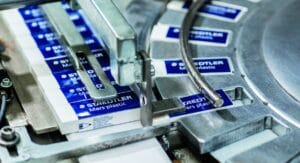
A contract with a handshake is valid
Managing director Tina Gerfer of Wilhelm Rasch Spezielmaschinenfabrik has modernized the company and successfully guided it through difficult times.
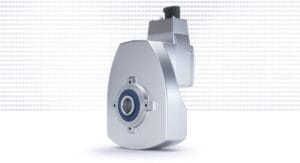
Asynchronous servo solutions for the packaging industry
From primary packaging to final packaging, electric drives play an important role. With a broad portfolio, Nord Drivesystems supports customers.
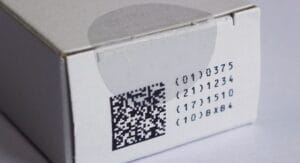
Label Durability
Labels offer many functions which can get lost due to label removal. PTS assesses labels and cardboard for durability and tamper evidence.
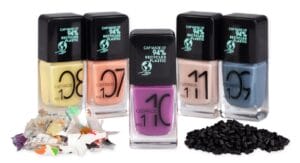
More design for recycling for cosmetics packaging
Packaging for decorative cosmetics is very special. The Forum Rezyklat calls for the recyclability of packaging to be taken into account when designing it.
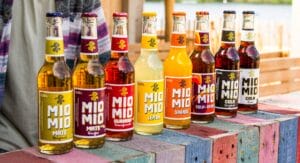
Innovation Barometer 2024
According to a survey conducted by Aktionsforum Glasverpackung 2024 is set to be a highly innovative year for glass packaging.
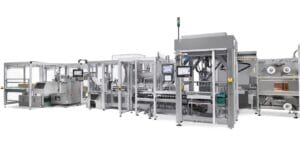
Flexible packaging system for natural cosmetics
Sustainability is part of Weleda’s identity. IWK is also contributing to this with its new flexible packaging line for many natural cosmetic products.




